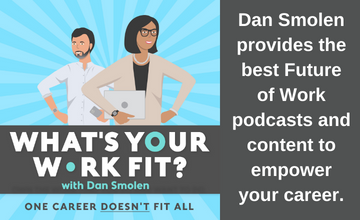Podcast: Play in new window | Download (Duration: 42:48 — 58.8MB)
Dan Smolen asks internationally recognized Corporate Diva Dipika Trehan: will women lead future work?
A self-described “philanthrepreneur,” Dipika promotes the health, wellness, and professional success of women across the globe.
Her brands, the H.O.W. Forum and Corporate Diva, work across many verticals of holistic employee well-being and female empowerment. As Dipika explains:
“Women are looking for two things which they don’t deservingly receive: one is dignity of labor and the other is respect.”
In a wide-ranging discussion, Dipika:
- Describes her personal and professional background, the H.O.W. [Health of Women] Forum, and Corporate Diva. Starts at 4:26
- Digs into research about the challenges facing professional women. Starts at 9:30
- Supports the promise of women in the workforce. Starts at 14:43
- Explains why the workplace needs more women leaders. Starts at 15:39
- Offers reasons why “Male Samaritans” should support professional women. Starts at 23:05
Will women lead future work? We contend that it is a likely outcome.
About our guest:
Dipika Trehan earned a Bachelor of Science in Home Economics from Lady Irwin College New Delhi and an MBA from the Institute of Management Technology Ghaziabad. She is an ET Now Top Global Diversity and Inclusion Leader (2020) and alumna of the Innovation in Women’s Health Program, Mashav (Israel). Dipika lives and works in Bangalore, India.
EPISODE DATE: February 25, 2022
Social media:
– Website
